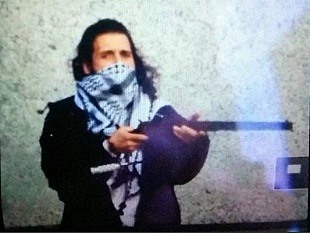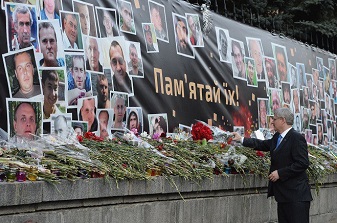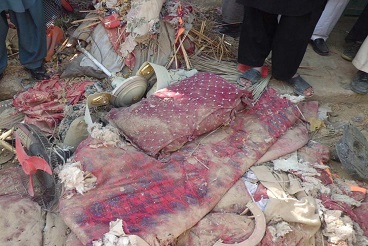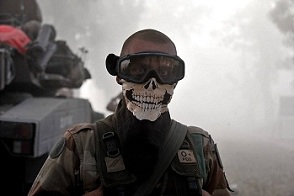Ottawa terror attack triggers massive police-military mobilization
The Canadian state has enacted its National Anti-Terrorism Plan, which involves the coordinated mobilization of all sections of the national-security apparatus, including the military, in response to the shooting Wednesday morning of a soldier at the National War Memorial in downtown Ottawa and storming of the national parliament building by a gunman.
The soldier, 24 year-old Canadian Armed Forces Reservist Nathan Cirillo, succumbed to his injuries.
Soon after, security forces shot and killed a man armed with a rifle in what is being described as a wild shootout in the Hall of Honour. The hall, which is both a ceremonial hall and main corridor, accesses the rooms where the ruling Conservatives and Official Opposition New Democratic Party (NDP) were holding their weekly parliamentary caucus meetings. When the shooting erupted, both Conservative Prime Minister Stephen Harper and NDP leader Thomas Mulcair were at their respective party meetings.
Police-intelligence sources have identified the dead gunman as Michael Zehaf-Bibeau. He was reportedly under surveillance by Canada’s national security agencies and had had his passport confiscated to prevent him from traveling to the Middle East to link up with Islamist militia groups.
In the aftermath of the Parliament Hill attack, police mounted a massive security operation, saying they believed there had been multiple attackers. The media cited unconfirmed reports of multiple shooters and shots being fired at locations other than the War Memorial and Hall of Honour. From the parliament buildings, the police rapidly expanded a security perimeter, placing offices, shops and schools under lockdown, closing off streets to all vehicular and pedestrian traffic, and deploying heavily-armed SWAT teams.
































